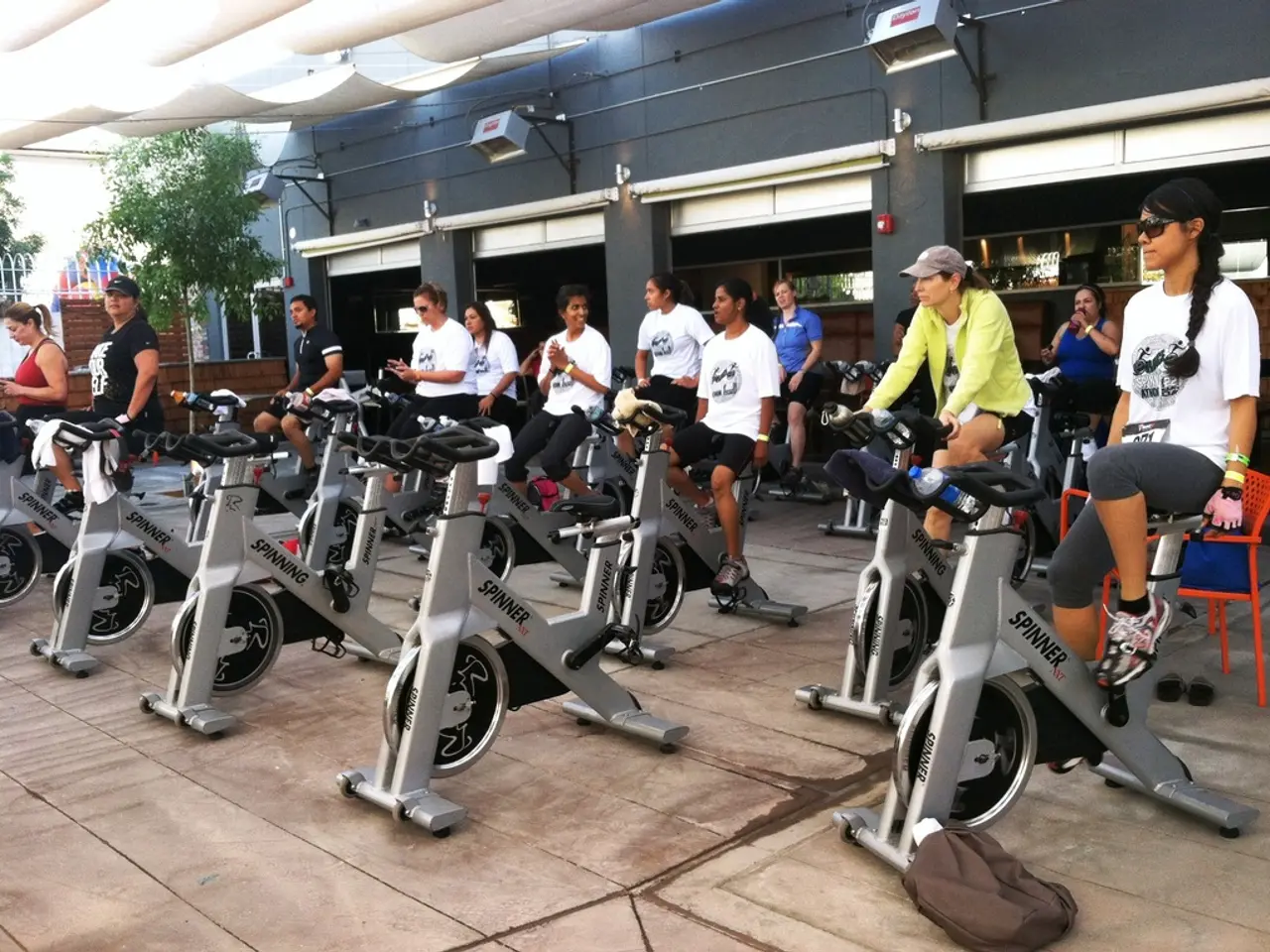Effective and secure approaches for physical activity during warm weather conditions
As the summer heat sets in, exercising outdoors can present unique challenges. However, with proper planning and precautions, it is possible to maintain a safe and enjoyable workout experience. Here are some essential tips to help you stay hydrated, prevent overheating, and maximize performance during hot summer days.
### Maintain Proper Hydration
Before embarking on your workout, it is crucial to ensure your body is adequately hydrated. Drink about 16 ounces of water 1-2 hours prior, followed by 2-3 cups of fluids 2 hours before the workout. During the workout, sip water regularly to replace lost fluids and prevent dehydration. After the workout, rehydrate with another 16 ounces of water or an electrolyte drink to replenish fluids and minerals lost through sweat.
### Prevent Overheating
Wearing appropriate clothing is vital to help regulate body temperature. Opt for lightweight, loose-fitting, and light-colored clothes made of moisture-wicking fabric to help sweat evaporate and cool your body. A hat provides shade to your head, a major cooling surface, while sunglasses protect your eyes from harmful UV rays. Apply SPF 30 or higher sunscreen about 30 minutes before going outside and reapply as needed. Splashing or misting your skin with cool (not ice-cold) water can also help regulate body temperature.
Avoid peak heat by exercising during cooler parts of the day, such as early morning or late evening, to minimize sun exposure and high temperatures. If you must exercise during the day, choose a shadier route and avoid the most active sun hours, typically 10:00 AM to 4:00 PM.
### Maximize Performance Safely
Allow your body to gradually acclimate to the heat by slowly increasing workout duration and intensity over several days. Listen to your body, and if you experience symptoms such as difficulty speaking, dizziness, fatigue, or nausea, reduce the intensity or stop to avoid heat-related illness. Take breaks in the shade and hydrate frequently to keep your body from overheating.
Avoid salt tablets, as they can worsen dehydration. Instead, use water or electrolyte drinks. Those with cardiovascular conditions, such as heart failure, should consult doctors about fluid intake and consider indoor exercises in air-conditioned spaces to avoid risks from dehydration and heat stress.
By following these hydration strategies, heat avoidance measures, and mindful exercise habits, you can safely maintain outdoor fitness during hot summer days while minimizing risks of overheating and dehydration.
Plan ahead by ensuring access to water during your workout or carrying water with you. Additionally, incorporating water-rich foods into your diet can also help increase hydration levels.
Remember, staying hydrated is key, especially in hot weather, with a recommended intake of 1 ounce of water per 2 pounds of body weight. By taking these precautions, you can enjoy a safe and enjoyable outdoor workout experience during the hot summer months.
[1] American College of Sports Medicine. (2018). Exercise and Heat Illness. Retrieved from
- Incorporating a skincare routine that includes SPF 30 or higher sunscreen and wearing light-colored, moisture-wicking clothing for exercise can contribute to workplace-wellness and overall health-and-wellness, shielding the skin from harmful UV rays and promoting a comfortable workout experience.
- Fitness-and-exercise enthusiasts, in pursuit of therapies-and-treatments for optimizing performance, should pay particular attention to maximizing hydration during hot summer days, as dehydration can negatively impact athletic ability and potentially lead to heat-related illness.
- For a well-rounded health-and-wellness approach, consider integrating nutrition tips into your summer workout regimen. Increasing daily water intake based on the American College of Sports Medicine's recommendations and adding water-rich foods to your diet, such as fruits and vegetables, can help ensure optimal hydration levels for sports performance.
- To further promote health-and-wellness and fitness-and-exercise, consult with professionals such as sports trainers, clinicians, and dermatologists for customized strategies to minimize risks while exercising outdoors during the summer heat, especially for those with cardiovascular conditions that may increase vulnerability to heat-related illness.




